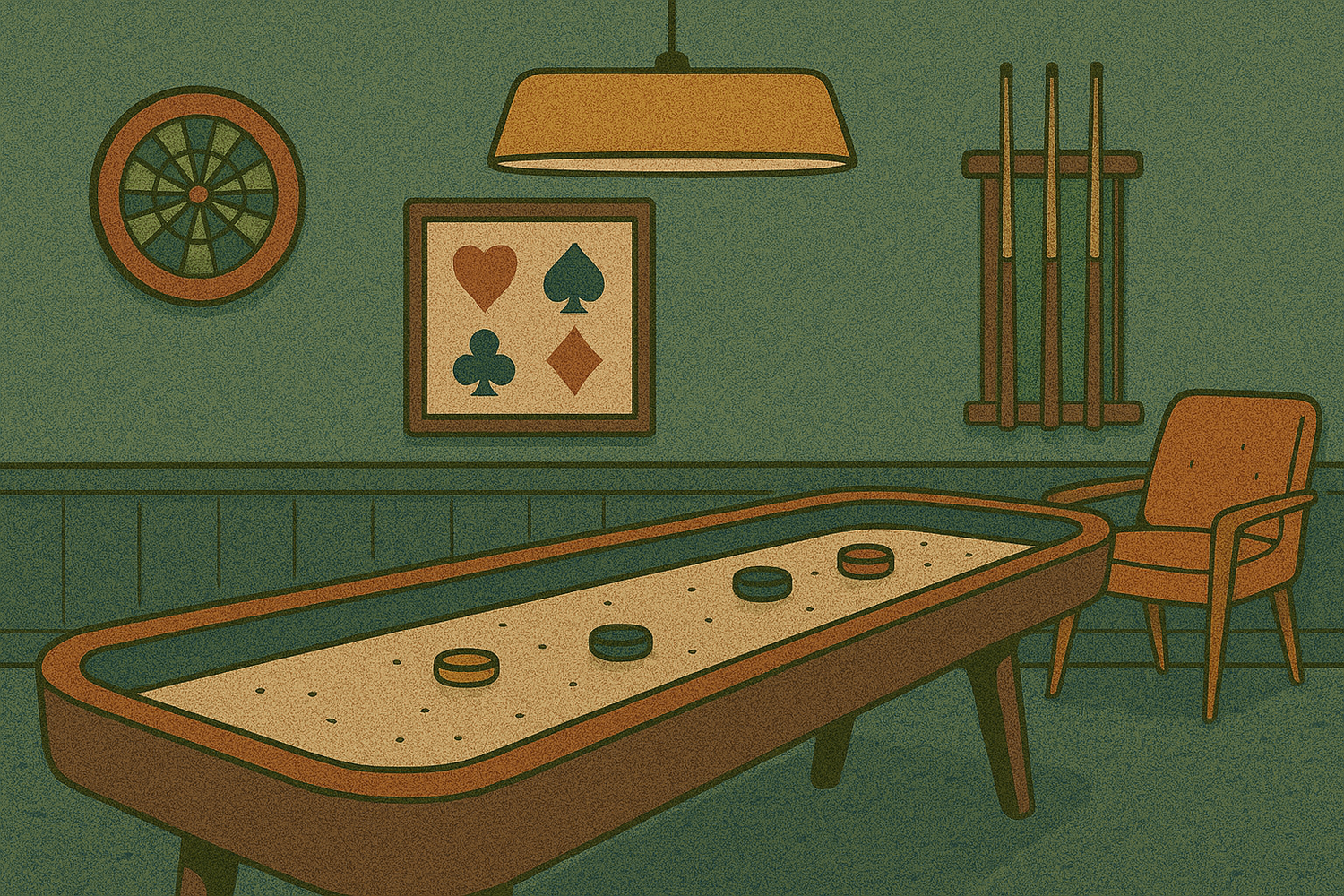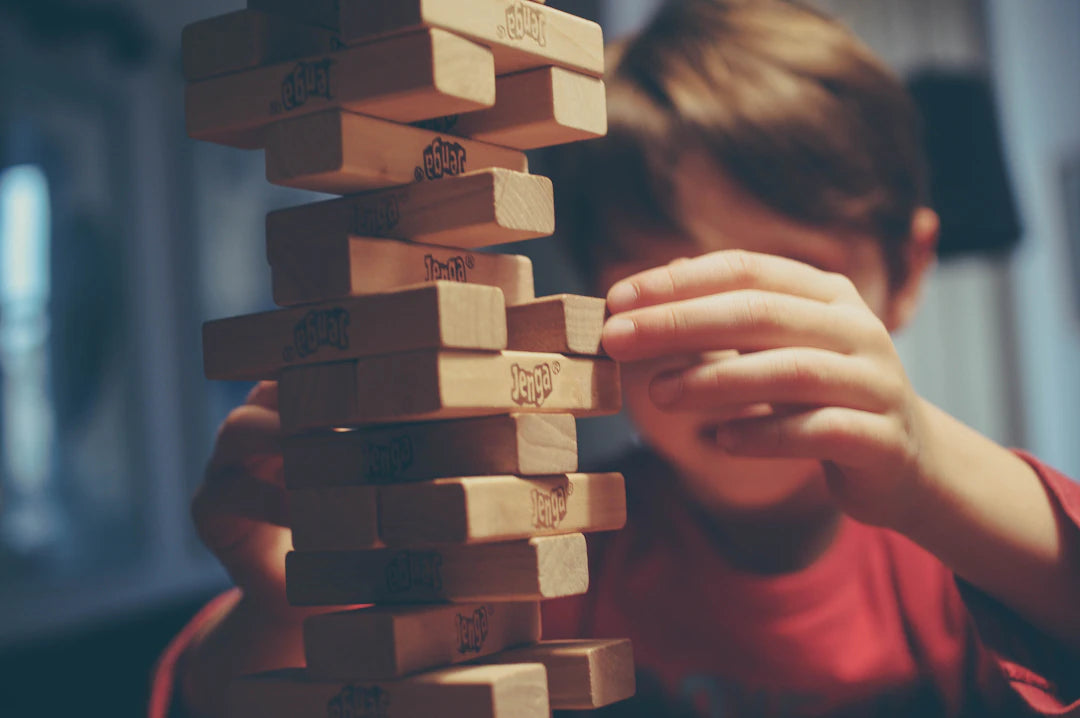Frequently Asked Questions
1. What are the social benefits of recreational games at home?
2. How do recreational games encourage quality time among family and friends?
3. In what ways do recreational games improve communication skills?
4. Can recreational games help in conflict resolution?
5. How do recreational games enhance emotional well-being?
In today's fast-paced world, where technology often dominates our leisure time, the value of play is more significant than ever. Recreational games at home have emerged as a way for families and friends to connect, bond, and enjoy each other's company. Whether it’s a classic board game, a thrilling card game, or an interactive video game, these activities offer more than just entertainment. They foster social connections, enhance communication, and provide countless benefits for all ages. In this article, we will explore the various social benefits of indulging in recreational games at home.
Creating Lasting Memories
One of the most significant social benefits of recreational games at home is the creation of lasting memories. When families and friends gather to play, they engage in experiences that will be cherished for years to come. Whether it’s a memorable victory, a hilarious mishap, or just enjoying the games together, these moments become the stories that are shared and retold over time.
Encouraging Quality Time
In today's busy environment, it can be challenging to find time to connect with loved ones. Recreational games naturally encourage quality time, allowing family members and friends to put aside distractions and focus on one another. This quality time strengthens relationships, allowing people to engage openly and share laughter, which is essential for emotional wellbeing.
Building Teamwork and Cooperation
Many recreational games require players to work together to achieve a common goal. Whether it's a cooperative board game or a real-time strategy video game, players must communicate and strategize to succeed. Engaging in these types of games helps develop teamwork skills, fostering a sense of unity and collaboration among players.
Boosting Communication Skills
Recreational games provide the perfect backdrop for improving communication. Engaging with others during gameplay encourages players to express their thoughts, share ideas, and articulate strategies. This fosters not only verbal communication skills but also non-verbal cues, as body language and expressions often convey vital information in a game setting.
Encouraging Participation and Inclusivity
Games often can be tailored to include participants of varying skill levels, age groups, and backgrounds. This inclusivity allows for everyone to be part of the fun and actively participate in social interactions. When everyone feels included, it enhances the overall social dynamic and provides an equitable playing field for every participant.
Resolving Conflicts and Developing Empathy
During gameplay, disagreements may arise, providing an excellent opportunity for players to practice conflict resolution. Learning to discuss differing opinions amicably while maintaining respect for one another is a valuable life skill. Additionally, recreational games can nurture empathy, as players must consider their opponents' feelings and thoughts, leading to greater understanding and connection.
Fostering Friendly Competition
While cooperation is vital, healthy competition plays a significant role in social engagement. Recreational games often introduce a competitive element that can motivate players to do their best. Friendly competition encourages individuals to push their limits, celebrate wins, and graciously acknowledge losses, reinforcing sportsmanship and mutual respect.
Encouraging Goal-Setting
Participating in competitive games can foster a sense of goal-setting among players. Each gameplay session provides a platform to set strategies and objectives, whether it's winning a game or improving individual performance. This drive for achievement can be a positive social force, as friends and family rally to support one another's goals.
Exhilarating Experiences Lead to Deeper Bonds
Mirth and excitement during gameplay can lead to stronger emotional connections among players. Sharing laughter, cheers of victory, and even the occasional moment of playful frustration creates powerful social experiences. These exhilarating moments can draw individuals closer together, strengthening the bonds of friendship and family.
Encouraging Creativity and Imagination
Many recreational games ignite creativity, challenging players to think outside the box. Board games that involve storytelling or role-playing elements encourage imagination, while strategy games push players to explore innovative solutions. This creative engagement signifies teamwork and can stimulate inventive conversations among players, leading to deeper connections.
Inspiring Shared Interests and Hobbies
As friends and family discover new games together, they often stumble upon shared interests. This forms common ground and can lead to passionate discussions and plans for future gatherings. By exploring varied game genres, players cultivate an appreciation for diverse interests and build a community centered around recreational activities.
Enhancing Emotional Well-Being
Engaging in social games at home has a positive impact on mental health. The laughter, camaraderie, and shared experiences can serve as effective stress relief and improve overall emotional well-being. Games provide players with an escape from reality, allowing them to unwind and recharge while enjoying the company of friends and family.
Building Resilience and Perseverance
Games often feature challenges and setbacks, making them an excellent teaching tool for resilience. Players learn to cope with adversity, bounce back from losses, and return with renewed vigor. This exposure to ups and downs cultivates perseverance, a trait that serves individuals well in various aspects of life.
Creating Opportunities for Learning
Many recreational games are not only fun but also serve as platforms for learning. Educational board games can teach critical thinking, problem-solving, and strategic skills, while video games can promote hand-eye coordination and quick decision-making. Playing together fosters an environment where learning takes place naturally, with players encouraging one another and celebrating new discoveries.
Sharing Knowledge and Skills
Games also present a perfect chance for players to share knowledge and skills with one another. Seasoned players can introduce newcomers to the rules, strategies, and nuances of their favorite games, fostering mentorship and collaboration. This sharing reinforces social ties and promotes a culture of continuous learning.
Socializing Beyond the Game
Recreational games can often lead to conversations and socializing beyond the game itself. As players engage, they may share personal stories, create inside jokes, or spark discussions that deepen their connections. The time spent together can naturally flow into other aspects of life, enhancing friendships outside of the gaming environment.
Organizing Community Events and Gatherings
Engaging in recreational games can also extend beyond the confines of the home. Friends and family who enjoy gaming together may choose to host events or join local gaming communities. These gatherings provide opportunities to connect with new individuals, thus widening social circles and enhancing social experiences.
Balancing Screen Time with Social Interaction
In an increasingly digital world, it's vital to balance screen time with personal interactions. While many people enjoy online games, it's essential to prioritize face-to-face interactions by incorporating recreational games at home. These in-person experiences help maintain interpersonal skills, develop relationship-building techniques, and foster a sense of belonging.
Encouraging Active Engagement
Recreational games require active participation, keeping players engaged and alert. This level of interaction contrasts significantly with passive entertainment forms such as watching television. By choosing games that encourage movement and interaction, players can enjoy valuable time with peers while staying physically active.
A Transformative Experience for Families
Families that regularly engage in recreational games showcase the most notable social benefits. Game nights offer families a chance to openly communicate, bond, and share experiences. Such gatherings emphasize respect, cooperation, and compromise, which are indispensable qualities that contribute to a harmonious family life.
Improving Family Dynamics
As families interact through games, they grow closer as they learn to navigate conflicts, celebrate achievements, and support one another. These shared experiences instill a sense of unity and cooperation, ultimately improving family dynamics and fostering a loving and supportive environment.
Embracing the Gift of Play
In conclusion, recreational games at home provide an invaluable opportunity to bolster social connections, enhance communication, and improve emotional well-being. These games create memorable experiences, foster teamwork, and encourage creativity while allowing players to engage meaningfully with one another. So, gather your friends and family and embark on a journey of fun, laughter, and memorable moments through the power of play. Embrace the gift of recreational gaming, and watch the connections flourish!



